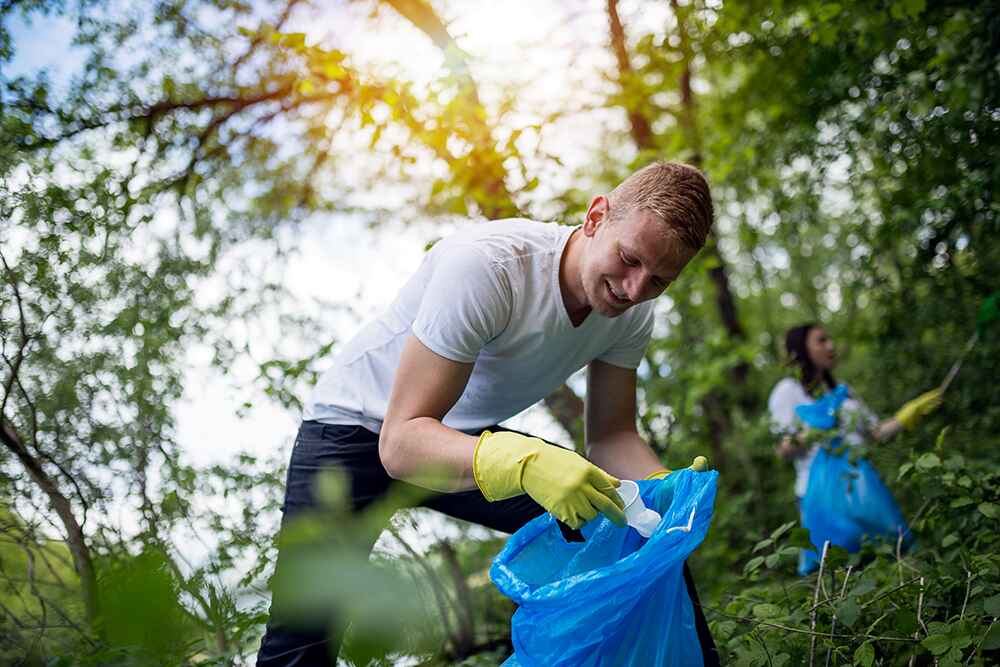
Giving Back to Others
“Giving back” may sound arbitrary in its overuse and implications in 12-Step programs. However, giving back can have a significant impact on your mental health and sobriety, whether you’re on the 1st-Step, the 12th-Step, or no step at all.
If you can, find a way to volunteer or give back to your local community. The Corporation for National and Community Service (CNCS) confirms that volunteering and community service have a myriad of benefits, especially for older generations.
Giving Back May Help You Live Longer
According to CNCS, studies show that those who help others by volunteering have lower mortality rates, meaning they tend to live longer than those who don’t volunteer. Those who received volunteer support did not have significant changes in lifespan, while those who did volunteer or offer support showed longer lifespans. This increase in lifespan may be attributed to the sense of purpose, physical exercise, happiness, and connectedness that often results from volunteering.
The American Journal of Public Health reported the same conclusion that volunteering or giving back results in a longer life. Researchers learned that stress is physically reduced in those who volunteer, attributing to their longer lifespan.
Giving Back May Improve Your Mental Health and Outlook on Life
Especially in older adults, volunteering provides a sense of purpose and a personal sense of accomplishment. People who have experienced significant trauma or loss also report having an improved outlook on life and a sense of duty and connectedness from helping others. Those who are retired or don’t work felt their life had more to offer when they volunteered.
Another study published by the American Journal of Public Health found that people who give back have more coping skills, more gratitude, greater life meaning, and an expanded network created by altruism. Overall, people experienced more happiness and increased their self-esteem through volunteering and giving back to their communities.
The Journal of Happiness Studies reports that helping others increased perceived happiness and happy memories in all study participants. Researchers also concluded that people are bound to become happier and more grateful by partaking in just one act of kindness per week.
Giving Back Can Increase Your Physical Well-Being
According to CNCS, volunteering and helping others can improve your physical health as well. This may be due to the increased movement and activity level often involved with volunteering or the boost in happiness and morale when volunteering — or perhaps both. As reported by CNCS, “Those who engage in volunteer activities are less likely to suffer from ill health later in life and may be introduced into a positive reinforcing cycle of good health and future volunteering.”
The American Journal of Public Health Association printed a study regarding perceived health and volunteer participation which found similar results to CNCS. Those who volunteered showed increased physical mobility, increased happiness, and better stress-coping mechanisms, all leading to minimal stress. The type of volunteering does not seem to have any influence on these stress-reducing benefits.
The “Volunteering Threshold” That Ensures These Benefits
Many researchers have conducted studies to determine if there is a type of volunteering or a specific time frame for volunteering that is most beneficial. CNCS has determined that there is no specific type of volunteering required to reap these benefits, but a minimum of one to two hours per week of volunteer time is needed, totaling about 100 hours per year. The happiness research study noted above agreed that increased happiness and the benefits of volunteering are at their best when a person volunteers at least once a week.
Researchers have also found that those who volunteer altruistically — meaning out of the goodness of their own hearts, rather than doing mandatory or required volunteering — seem to enjoy the benefits of volunteering the most.
Volunteering, Gratitude, and Overall Happiness
We know there is a link between gratitude and happiness. The latest research indicates there is a link between kindness and happiness as well. After all, acts of kindness seem to inspire gratitude and happiness.
Those who volunteer tend to count their blessings more and experience happiness in their own lives, as well as the happiness generated from volunteering. If you’re looking for happiness in your life, start by helping others. You don’t need to sponsor someone else if you don’t feel it’s the right step for you or take on more than you can handle. Simply find an organization that interests you and start giving back at your own pace — and then get ready to enjoy the benefits.
Giving back and showing kindness has been proven to increase lifespan, decrease stress, and improve mental health and physical well-being. As long as you volunteer or help someone at least once a week, you’ll be able to reap these benefits, too. If you’re struggling with your own happiness, you don’t have the time or means to volunteer, or you simply don’t know where to start, contact RECO Intensive. At RECO Intensive, we understand that achieving happiness can be difficult and you may have limited opportunities to give back. We want to help you succeed in your mental health, your sobriety, and ultimately your happiness. At RECO Intensive, our specialized staff and experienced alumni manage depressive disorders and can offer therapies to help you, as well as opportunities for growth. We cater our packages specifically to you to help you reach your goals. Call RECO Intensive today at (561) 464-6533. Let’s get back to a brighter future.